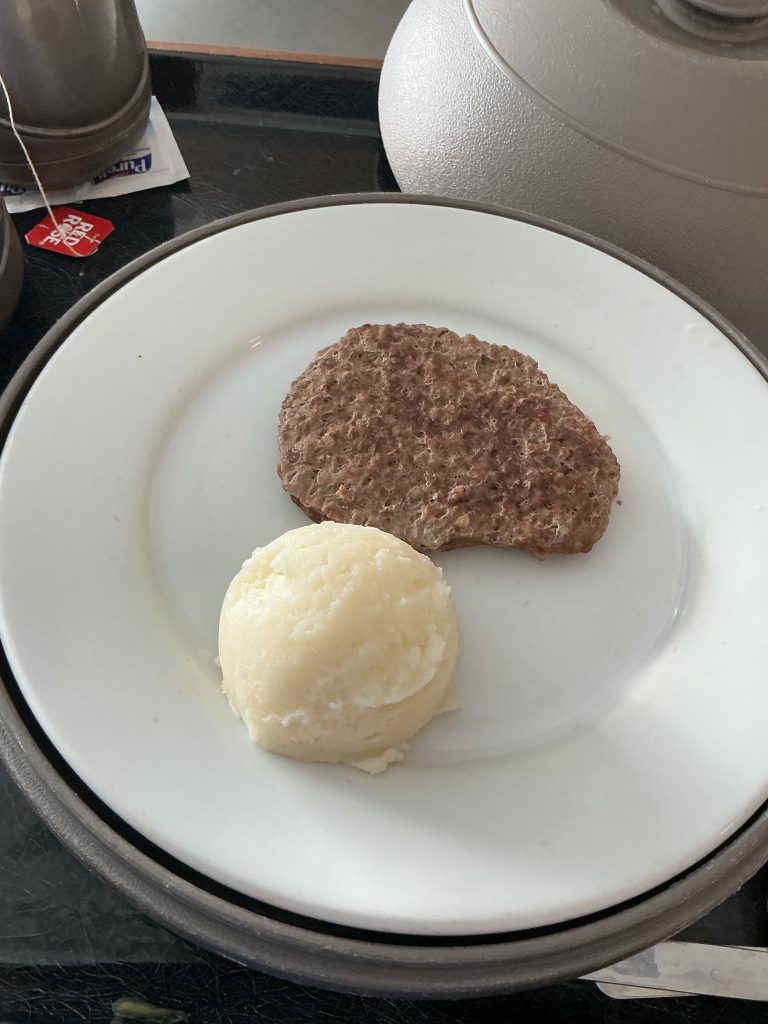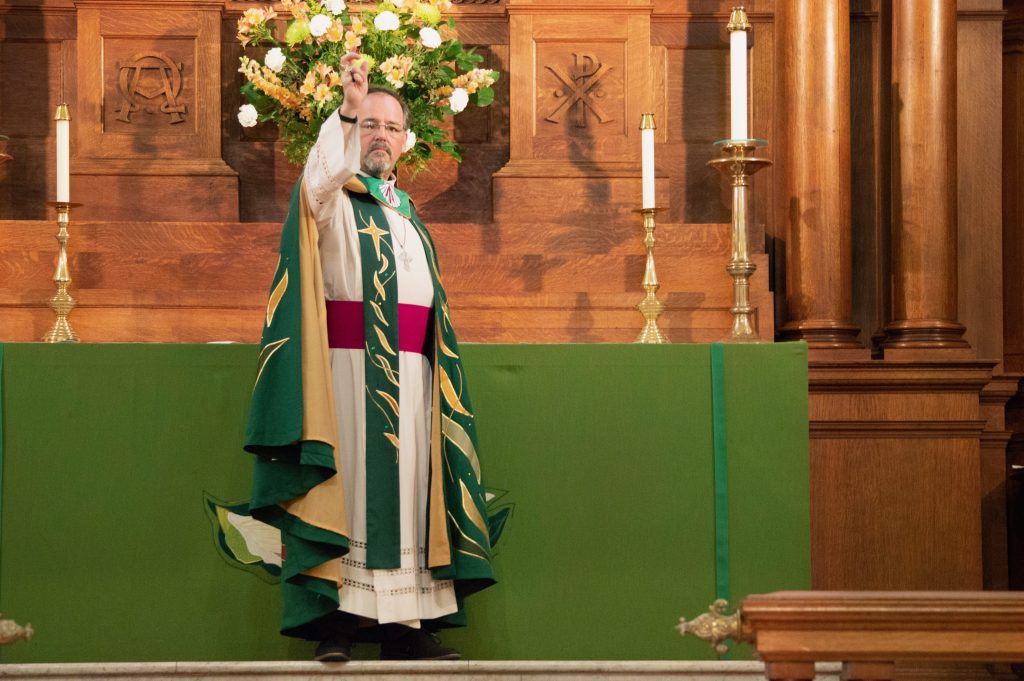
Today I finally go home from my extended hospital stay. I know that there is not a thing in the refrigerator, and so the first stop on the way will have to be at the grocery store to re-stock. It’s funny that such a simple stop could become something that I would so look forward to, but after two weeks of beef patty and herbed chicken, I am really excited to make something creative. But that anticipation of a grocery trip got me really considering the grocery store, or perhaps more, the grocery store parking lot.
There are few places where the human condition is more clearly displayed than in the parking lot of a grocery store. Some theologians explore the mysteries of divine transcendence; others probe the depths of the Trinity. I, however, seem to spend an inordinate amount of my pastoral life contemplating… grocery carts.
If you want to understand original sin, human frailty, the hope of redemption, and the entire Epistle of James — all in under three minutes — simply observe what happens when someone unloads their groceries. A curious drama unfolds:
There is the Saint in Training, who returns the cart dutifully, even though the cart corral is three postal codes away. They persevere like Hebrews 12 incarnate, pushing their cart with the resolve of a pilgrim bound for Santiago.
There is the Optimist, who positions the cart “close enough,” vaguely in the direction of the cart return, perhaps hoping that a strong wind will cooperate with their moral intentions.
There is the Theologian of Chaos, who leaves their cart precisely where their car was moments earlier — as if the act of vacating the parking space transfers all cosmic responsibility to the next person.
And, of course, we have the Mystic, who gently nests their cart with another but in a creative new location unburdened by signage, order, or the labyrinthine laws of the parking lot. A sort of “new monasticism of metal and wheels.”
As I watched this liturgy of carts one afternoon, I began to wonder whether grocery carts are one of God’s more underrated sanctifying tools. Returning a grocery cart is a tiny, almost invisible act of courtesy — remarkably unglamorous and entirely unmonetized. It will not earn you sainthood, social media followers, or even a polite nod. In fact, most of the time, no one sees you do it.
Which is precisely what makes it holy.
Our faith traditions are filled with reminders that grace is found in the small gestures — cups of cold water, mustard seeds, widow’s mites, greetings offered, burdens shared. Courtesy is the quiet cousin of charity: modest, unassuming, but profoundly Christian. It builds community in ways so subtle we almost miss it.
To return a grocery cart is, in a way, to practise incarnational theology: grace with wheels. You’re saying, “I occupy this world with you, and my small actions affect your daily life.” It’s the spiritual discipline of not making someone else’s day harder. And while no one may canonize you for it, the angels probably smile and say, “Look — there’s one of ours, pushing holiness uphill.”
The truth is, we’re all cart-leavers sometimes. Life gets busy. Children get cranky. Rain falls horizontally. And every so often we find ourselves thinking, “Surely someone else will take care of this one.” Which is just another way of saying, “I’m human.”
But on the days when we do return the cart — when we take the extra thirty seconds to leave a small corner of the world tidier than we found it — we participate in the slow, steady mending of our common life.
Community is never built in grand gestures alone. It is built in parking lots, grocery aisles, and the tiny courtesies we offer one another, over and over again, quietly and without applause.
So the next time you find yourself standing at the back of your car, staring at the cart and contemplating your options, just remember: you are engaging in one of the great unheralded spiritual decisions of modern life.
Push the cart. Return it home.
And smile, knowing that holiness sometimes squeaks a little on the pavement.
Prayer
Holy and gracious God,
You meet us not only in sanctuaries and chapels, but in parking lots, grocery aisles, and the small, unremarkable corners of daily life.
Teach us the sacred art of courtesy — to choose kindness when no one is watching, to return the carts that aren’t ours, to lighten the load for a stranger without expecting reward.
Make our hands willing, our steps mindful, and our hearts generous in the little things, that your Kingdom may be built not only with grand gestures,but with simple mercies offered in love.
Bless our community with patience, with humour, with compassion in unlikely places, and with grace that rolls gently toward others. In the name of Christ, who meets us in every ordinary moment.
Amen.








